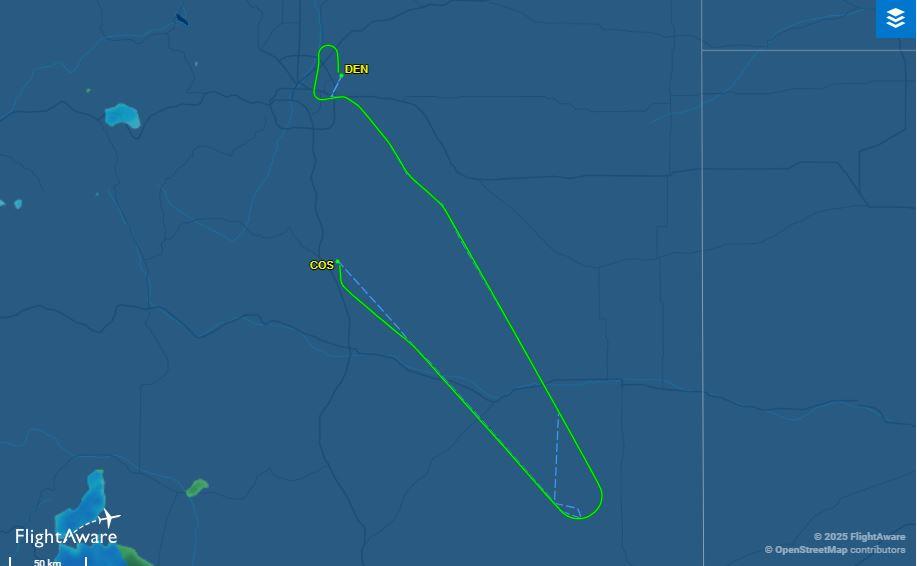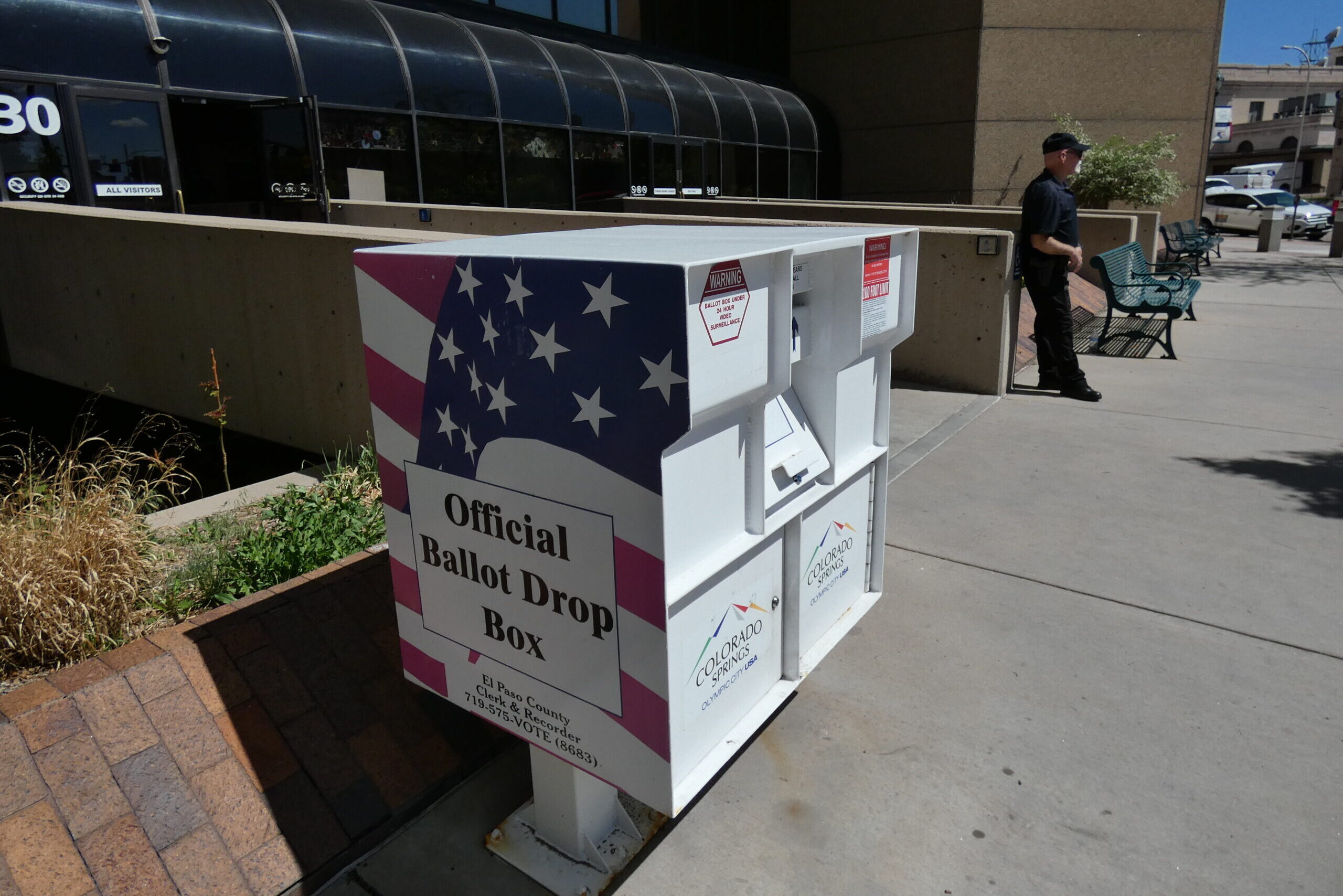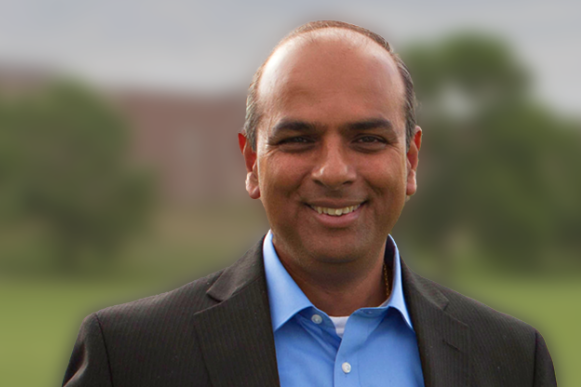A cutting edge agricultural site just opened in Denver. It's a huge hydroponic greenhouse that should yield fresh produce year-round. It's also in one of the city's poorest neighborhoods, and aims to sell fresh, healthy food to nearby residents for cheap. CPR Health Reporter Eric Whitney has more.
SOUND: Interstate 70 roaring above Elyria-Swansea
CPR HEALTH REPORTER ERIC WHITNEY: Northeast of downtown Denver, the little neighborhood of Elyria-Swansea is one most people go flying through without stopping.
Six elevated lanes of interstate 70 roar above Elyria-Swansea's streets. Tiny houses and mobile homes here are surrounded by warehouses and industrial sites. Most noticeable, because of the smell, is the Purina dog food plant.
SOUND: Train horn
REPORTER: Just across the railroad tracks from it is the GrowHaus, a big, squat one-story building where Adam Brock now works. He says it was built decades ago to process cut flowers.
GROWHAUS DIRECTOR OF OPERATIONS ADAM BROCK: Y'know, the flower market globalized, it sat vacant for five or six years, until it was purchased by a local developer, named Paul Tamborello, who does a lot of work in the Highlands, and also has a passion for food justice, and social justice in general, and he saw the potential in this big greenhouse in the middle of a food desert, and decided to buy it.
REPORTER: Tamborello's vision is to create an oasis in this food desert. That's a low income neighborhood where most people live more than a mile from stores selling fresh fruits and vegetables.
So he started a non-profit to renovate the old building into a state of the art greenhouse.
He hired Brock and a couple of other urban agriculture experts, and now food sprouts here.
SOUND: Tilapia splash in aquaponic tank.
BROCK: “So this is just kinda organic fish feed that we buy in bulk...” (fade under).
REPORTER: Part of the cavernous building is devoted to aquaponics. That's a system that grows edible fish, and uses water from their huge tanks to grow greens and vegetables. Another wing of the building is a 'hydrofarm' where plants grow without soil in long, white plastic tubes. That part of the greenhouse is heated by a sophisticated geo-thermal system that's more environmentally friendly than conventional heating.
It all seems pretty, well, hippie for a working class Latino neighborhood like Elyria-Swansea.
BROCK: (Laughs) Yeah, definitely, we've encountered a little bit of skepticism, but certainly no outright antagonism. I think every body is either a little bit kinda just waiting on the sidelines to see what happens, or else kind of actively involved in doing whatever they can to make it happen.
GROWHAUS BOARDMEMBER LILIANA FLORES-AMARO: I think the community is at a wait and see point.
REPORTER: Liliana Flores-Amaro has lived in Elyria-Swansea all her life. She went from being curious about the GrowHaus to taking a couple of gardening classes there. And then a month ago, she joined its board of directors.
She says she's confident locals will embrace the GrowHaus because “urban agriculture” isn't really a new thing here.
FLORES-AMARO: Oh, I think people in this community have been doing it for years, whether it's been acknolwledged as urban agriculture or not. I mean, I hear chickens in the mornings.
REPORTER: To Flores-Amaro, the GrowHaus is less an alien concept from outside than an opportunity to revitalize Elyria-Swansea's longstanding backyard gardening culture.
FLORES-AMARO: I want to make sure that knowledge and those practices are cultivated again, for new generations to learn.
.
REPORTER: The outsiders who started the GrowHaus go out of their way to involve people from the neighborhood. They have raised beds inside where locals can grow their own food year-round, for free. They have farmer training programs for Eyria-Swansea's young people. They really just want to share their knowledge to help the people here, but Adam Brock admits it doesn't always work.
BROCK: We tried to teach a Permaculture class here, in Spanish, and I think Permaculture as a concept is just a little bit too out there for kinda working class families in this neighborhood. If they had been there, they might have understood and connected it to things that they already knew, but kind of framing it as Permaculture might not be the best first step.
REPORTER: Brock thinks the GrowHaus's next step will be a lot more popular. They plan to turn part of the building into a storefront where they'll sell what they grow inside, and fresh food from other farms, at affordable prices. Selling some of the harvest to fancy restaurants and farmers markets for a profit will help them keep prices down in the neighborhood.
James Jenkins and Clifford Mayfield are neighbors who came by for an open house last week.
ELYRIA-SWANSEA RESIDENT JAMES JENKINS: It's a real good thing because for a long time this place has been shut down, it's been like a dark spot on our corner and in our neighborhood, so it's beautiful that people would open it up and make it something good for us.
ELYRIA-SWANSEA RESIDENT CURTIS MAYFIELD: You know, the elders, they could walk right here or come right here, pick up they produces or whatever they need, you know what I mean? They won't have to go so far.
REPORTER: Opening the storefront will be a big step for the GrowHaus. Beyond that, it still has 15,000 square feet of unused space in its building. The guys who started it say they want people from the neighborhood to figure how to best use it and, eventually, they actually want them to take the whole place over.







